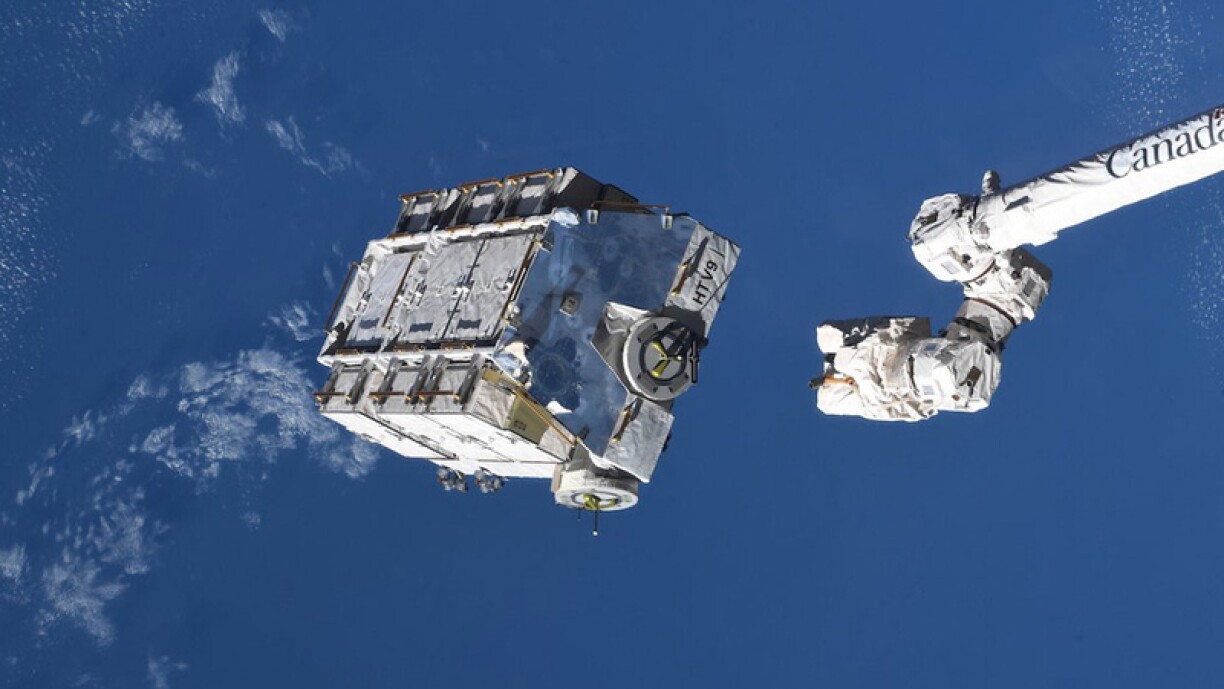
A battery pack which detached from the ISS in March 2021 is on its way to Earth, leading the German Federal Office of Civil Protection and Disaster Assistance to issue a warning after reports that debris could land in parts of Rhineland-Palatinate.
But how much of a risk does this space junk pose to Luxembourg? RTL’s Michèle Reiter and Dan Spogen consulted expert Ranga Yogeshwar on the subject.
The Luxembourgish physicist and scientific journalist explained that the debris in question consists of a battery pack weighing around 2.6 tonnes, which has gradually been making its descent from an altitude of 477 kilometres above Earth. After around three years, the debris is now entering the atmosphere, where it will slow down and start to burn up.
According to Yogeshwar, there is a small chance that the battery pack will not completely burn up:
“Of course, as these batteries are made of somewhat dense, heavy materials, some of the calculations predict that some of the debris could still fall to Earth. But it is really a minimal chance. Experts have looked at simulations to identify where this could be the case. In Germany, there are three locations where the object is likely to orbit, but as Luxembourg is much smaller, there’s just one, which will take place at around 4.50pm on Friday afternoon. So there is a very small possibility of debris landing here, but a very minimal one.”
Yogeshwar said there was no reason not to go out and enjoy the weather on Friday, as the risk was deemed to be minimal. If any debris were to fall onto Luxembourg’s territory, it would have to take place during a very small window of time, late on Friday afternoon, in the north of the country.
He highlighted that there was a higher risk level in climbing a ladder, than the risk associated with space junk. But in similar cases in the past, the objects usually burned up upon entering Earth’s atmosphere.